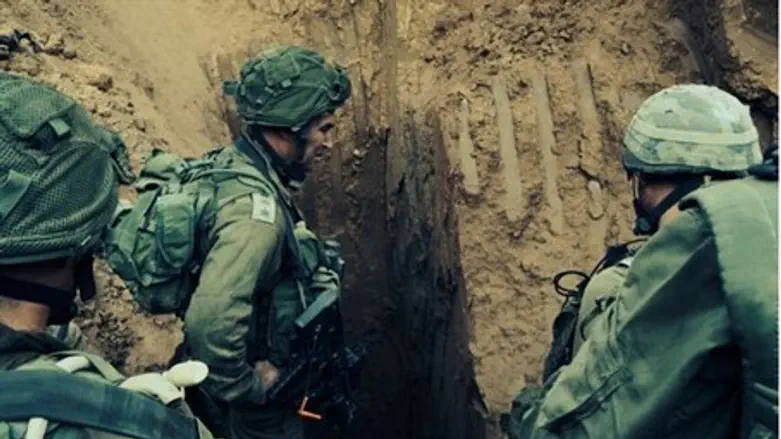
The Jewish High Holidays are fast approaching, but for many residents of the Gaza Belt in the south this Jewish New Year (Rosh Hashana) will be spent away from home due to the security threats still present following Operation Protective Edge.
Just this Tuesday the ceasefire reached with the terrorist group Hamas on August 26 was breached by mortar fire, although Hamas, which has breached numerous ceasefires, denied involvement and said it arrested the perpetrators.
"There are a lot of concerns, even without connection to the (mortar) fire yesterday," Danny Cohen of Kibbutz Ein Hashlosha in the region told Yedioth Aharonoth. "People are concerned about Hamas's plans...the traditional (Rosh Hashana) party we throw will be very reduced this year. If last year we had 150 people, this year there will be 60."
The concerns particularly revolve around the threat of an attack occurring on Rosh Hashana.
"I'm going to hold the holidays elsewhere with friends," said Silvia Orshovsky of Ein Hashlosha, who owns a local market that was hit by a mortar round during the operation. "We're worried about what might happen on Rosh Hashana. It's a fact that the firing started yesterday. In this way trickles (of rocket fire) start. People are very afraid, I want to be secure."
During the operation, it was revealed that Hamas was planning to use its lethal terror tunnels to commit a massacre against Jews in the region on Rosh Hashana. While over 30 of those tunnels were destroyed by the IDF, there are fears that not all were located.
Likewise, it has been revealed the Hamas and other Gaza terrorist groups such as Islamic Jihad have already started rebuilding the tunnels. Video evidence shows that the renewed digging of the tunnels started even minutes after the ceasefire.
"We didn't expect anything else"
Many residents of the area expressed their feelings of abandonment in terms of security by the government in the wake of the operation.
Meirav Cohen, also of Kibbutz Ein Hashlosha, told Walla! "we didn't think that things would look differently after the war ended as it did, we didn't expect anything else." The comment refers to the ceasefire that was widely opposed by the Israeli public according to polls.
Meanwhile in Kibbutz Nahal Oz, where four-year-old Daniel Tragerman hy''d was tragically murdered by a mortar shell on his home, 17 families have already announced they will be leaving the kibbutz - either for good or for at least for a year away. Those include the family of Tragerman.
The sentiment of many residents of the south was expressed by Romi Shehori of Nirim, who said "we will hold the holiday far away and pack for several days. If it won't be quiet - we'll stay there."
"One of the lessons from Protective Edge was to rely only on ourselves. No one will take care of us," added Shehori. Speaking of the numerous ceasefires, he said "there was abandoning (of residents) throughout the whole war. Even if they tell us there will be quiet - we don't believe them."
The dissatisfaction with Prime Minister Binyamin Netanyahu's handling of the operation was expressed by MK Danny Danon (Likud), who was dismissed from his role as deputy defense minister by Netanyahu for his criticism.
Danon pointed out that Netanyahu agreed to a ceasefire early in the operation even before Hamas's terror tunnel was lethally unveiled against IDF forces in its breach of the ceasefire. Danon noted that the ceasefire Netanyahu accepted would have left the tunnel system intact to potentially be used in massacring Israelis.